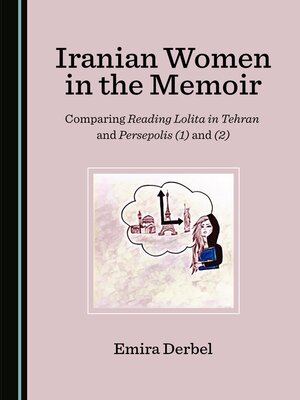Iranian Women in the Memoir
ebook ∣ Comparing Reading Lolita in Tehran and Persepolis (1) and (2)
By Emira Derbel

Sign up to save your library
With an OverDrive account, you can save your favorite libraries for at-a-glance information about availability. Find out more about OverDrive accounts.
Find this title in Libby, the library reading app by OverDrive.



Search for a digital library with this title
Title found at these libraries:
| Loading... |
This book investigates the various reasons behind the elevation of the memoir, previously categorized as a marginalized form of life writing that denudes the private space of women, especially in Western Asian countries such as Iran. Through a comparative investigation of Azar Nafisi's Reading Lolita in Tehran and Marjane Satrapi's Persepolis (1) and (2), the book examines the way both narrative and graphic memoirs offer possibilities for Iranian women to reclaim new territory, transgress a post-traumatic revolution, and reconstruct a new model of womanhood that evades socio-political and religious restrictions. Exile is conceptualized as empowering rather than a continued status of loss and disillusionment, and the liminality of both women writers turns into a space of artistic production. The book also resists the New Orientalist scope within which Reading Lolita in Tehran, more than Persepolis, has been misread. In order to reject these allegations, this work sheds light on the representation of Iranian women in Reading Lolita in Tehran, not as weak victims held captive by a totalitarian version of Islam, but as active participants rewriting their stories through the liberating power of the memoir. The comparative approach between narrative and comic memoirs is a fruitful way of displaying similar experiences of disillusionment, loss, return, and exile through different techniques. The common thread uniting both memoirs is their zeal to reclaim Iranian women's agency and strength over subservience and passivity.






